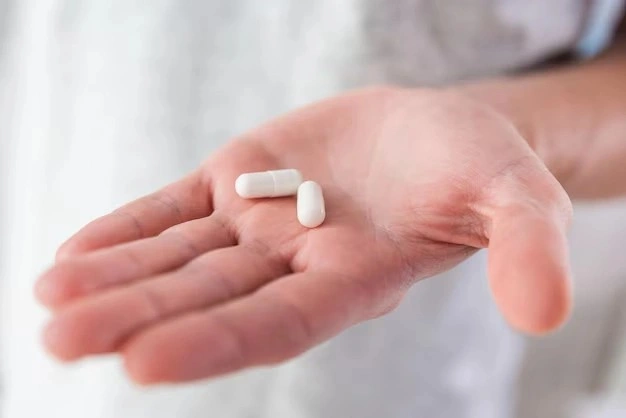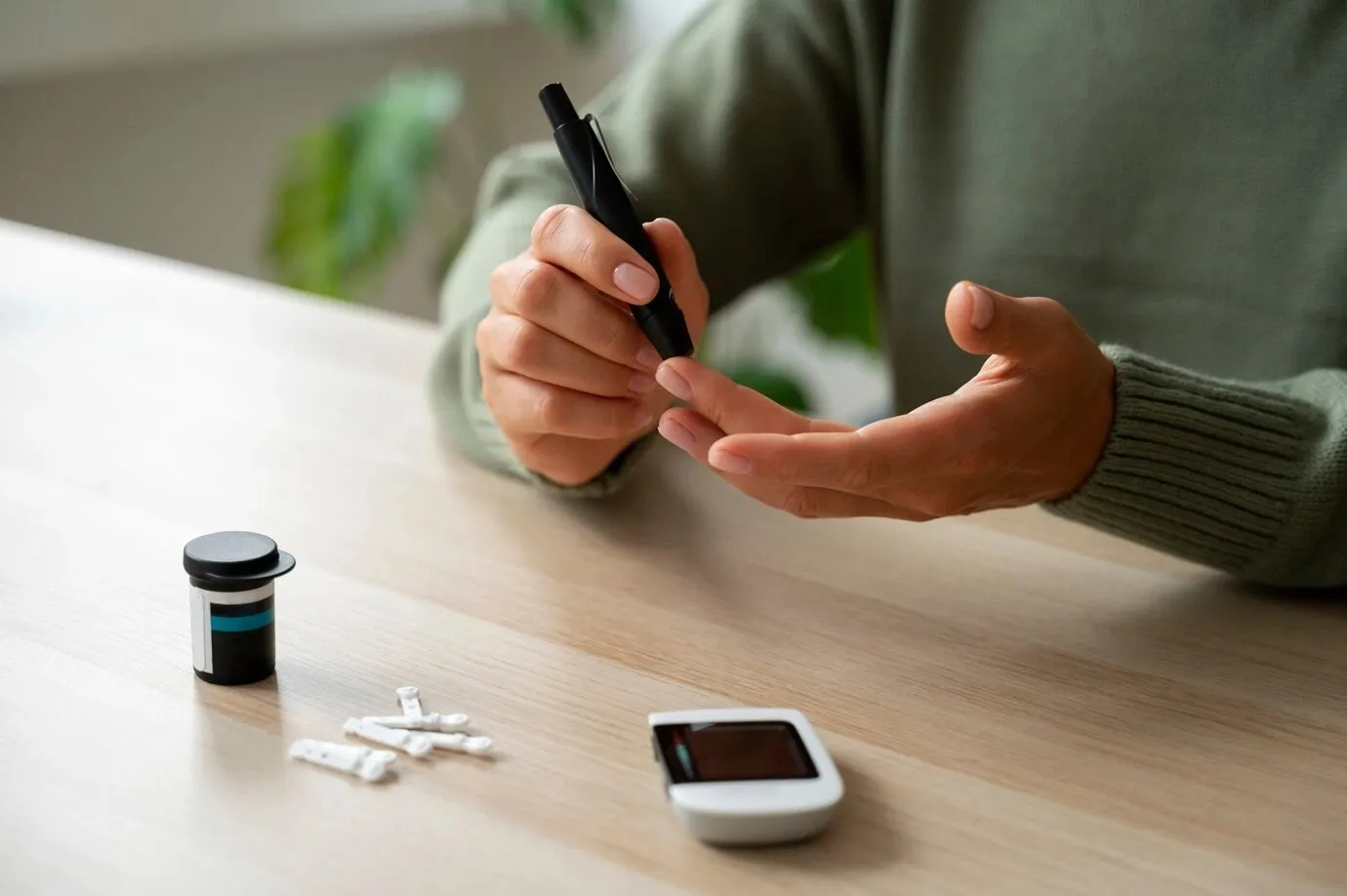Table of Contents
Curious about the role resveratrol plays in anti-aging? You're not alone.
Known for its antioxidant powers, this plant-based compound has captured attention for its potential to slow the hands of time.
But here’s the kicker—taking the right amount might be the difference between reaping its benefits or just passing the hype.
Stick around as we explore how resveratrol works, its potential for anti-aging, and how to figure out the right dose for your needs.
NMN + Resveratrol
Cellular NAD+ booster with ultra‑pure NMN and Resveratrol, at research‑backed doses.*
What Is Resveratrol?
 Resveratrol is a natural compound found in red grape skins, berries, and some nuts, celebrated for its potential to fight aging and protect cells from damage.
Resveratrol is a natural compound found in red grape skins, berries, and some nuts, celebrated for its potential to fight aging and protect cells from damage.
This compound belongs to a group of polyphenols called stilbenoids and acts as a defense mechanism in plants, helping them survive stressors like UV radiation and fungal attacks.
For us, resveratrol does something similar—its antioxidant properties help neutralize harmful free radicals that contribute to aging and chronic diseases.
Resveratrol can be consumed through foods like red wine and blueberries or as supplements offering higher doses. While it’s no magic potion, it’s become a popular choice for those looking to support healthy aging naturally.
How Does Resveratrol Work for Anti-Aging?
Resveratrol may support anti-aging by protecting cells from oxidative stress, reducing inflammation, and activating longevity-related proteins like sirtuins.
At its core, resveratrol interacts with your body’s natural defenses. Studies suggest it may activate sirtuins—proteins linked to DNA repair, cellular health, and longevity (1). Think of sirtuins as your body’s maintenance crew, tidying up cellular damage that accumulates over time.
Resveratrol might also help combat oxidative stress—a major contributor to aging.
Oxidative stress occurs when free radicals outpace the body’s ability to neutralize them, causing wear and tear on cells. Studies show that resveratrol’s antioxidant properties can help keep this balance in check (2).
Additionally, its anti-inflammatory effects may help prevent chronic conditions like heart disease or arthritis, both of which are linked to aging (3). One study even hinted at resveratrol’s ability to mimic calorie restriction, which is tied to longer lifespans in some animal studies (4).
However, while promising, much of this research is ongoing, and individual results can vary.
What is the Best Resveratrol Dosage for Anti-Aging?

Experts suggest starting with a resveratrol dosage of 150–500 mg daily for anti-aging benefits. This range is considered safe and effective for most individuals, with minimal risk of side effects.
Studies have shown that doses up to 5 grams (5,000 mg) daily are technically safe, but higher amounts—especially above 2.5 grams—can lead to issues like nausea or abdominal discomfort (5).
That’s why many experts recommend sticking to smaller doses to start with, particularly since resveratrol is metabolized quickly by the body.
Research also indicates that consistent doses in the 250–500 mg range can help promote antioxidant activity and support cellular health, which are key components of slowing the aging process (6).
Potential Side Effects and Risks of Resveratrol
Resveratrol is generally safe and well-tolerated when taken in the recommended dosage range. However, like any supplement, it’s not completely risk-free, especially at higher doses.
If you consume more than 2.5 grams per day, you might experience some uncomfortable side effects (7), such as:
Gastrointestinal discomfort: Symptoms like nausea, vomiting, diarrhea, or abdominal pain.
Increased bleeding risk: Especially if you’re taking blood thinners or have a bleeding disorder.
Potential liver or kidney issues: Rare but possible with extremely high doses.
These risks are uncommon at lower dosages, which is why starting small and consulting a healthcare professional before increasing your intake is always a good idea. Supplements can be powerful tools, but they’re most effective when used thoughtfully and responsibly.
NMN + Resveratrol
Cellular NAD+ booster with ultra‑pure NMN and Resveratrol, at research‑backed doses.*
Potential Benefits of Resveratrol Supplements
 Resveratrol supplements offer a variety of potential health benefits, thanks to their antioxidant and anti-inflammatory properties. Here are some of the most noteworthy:
Resveratrol supplements offer a variety of potential health benefits, thanks to their antioxidant and anti-inflammatory properties. Here are some of the most noteworthy:
- Cardiovascular Health: Studies have found that resveratrol might help reduce systolic and diastolic blood pressure in individuals with hypertension. It may also support healthy blood flow, improve cholesterol levels, and lower the risk of heart disease and stroke (8).
- Cognitive Function: Research suggests resveratrol could protect cognitive health in older adults, potentially helping maintain memory and slow the progression of conditions like Alzheimer’s (9).
- Metabolic Function: Resveratrol may aid in regulating blood sugar levels and improving insulin sensitivity, which could lower the risk of type 2 diabetes and related metabolic disorders (10).
- Joint Pain: A daily dose of 500 mg has been linked to reduced joint pain in people with mild to moderate osteoarthritis. Another study found it might help relieve inflammation and damage in rheumatoid arthritis (11).
- Immune System Support: Low doses of resveratrol have shown promise in supporting immune health by reducing inflammation and enhancing antioxidant activity (12).
Best Ways to Take Resveratrol for Anti-Aging
You can find resveratrol naturally in foods like red grapes, blueberries, and peanuts, or as a component in red wine. While these sources are great for a general health boost, they may not provide the consistent doses needed for anti-aging benefits.
That’s where supplements come in. Resveratrol supplements deliver measured doses, ensuring you get an effective amount without having to eat a mountain of grapes.
Supplements are often the preferred choice for those focusing on specific health goals. With higher concentrations and added bioavailability enhancers like Bioperine®, they offer a practical way to maximize resveratrol's potential.
When selecting the best resveratrol supplement, keep these tips in mind:
Look for purity levels of 98% or higher.
Check for transparent ingredient lists with no fillers or artificial additives.
Opt for supplements with bioavailability enhancers like Bioperine®.
Ensure the dosage matches those commonly studied, such as 250–500 mg per serving.
For those seeking a high-quality option, Omre NMN + Resveratrol stands out. This supplement offers a potent blend of 500 mg of NMN and 500 mg of Resveratrol per serving, combined with Bioperine® for enhanced absorption.
Made with 99% purity ingredients, it’s designed to support cellular health by increasing NAD+ levels and activating sirtuins—both key players in the fight against aging.
What sets Omre apart is its commitment to quality: no fillers, impactful doses, and ingredients tested for purity and effectiveness.
Whether you’re starting your anti-aging journey or looking to optimize your health routine, Omre NMN + Resveratrol is a trusted choice.
Conclusion
Resveratrol holds significant promise as a supplement for supporting cardiovascular health, cognitive function, and overall anti-aging goals. Whether you’re exploring natural sources or opting for a supplement, finding the right balance and quality is key.
Ready to explore a premium option? Omre NMN + Resveratrol offers unmatched quality and efficacy to help you stay on top of your health goals. -v1738361410995.webp) Check availability today and take the next step toward vibrant health.
Check availability today and take the next step toward vibrant health.
FAQs
Can I get enough resveratrol from red wine alone?
Not really. While red wine contains resveratrol, the amounts are quite small—typically 1–2 mg per glass. To match the doses studied for anti-aging (150–500 mg), you’d need to drink an impractical amount of wine, which isn’t healthy. Supplements are a more reliable source.
Is it safe to take resveratrol long-term?
Yes, resveratrol is generally safe for long-term use when taken within recommended doses. However, high doses (above 2.5 grams daily) may lead to side effects. It’s always a good idea to consult your healthcare provider for personalized advice.
What’s the best time to take resveratrol for anti-aging?
Morning is often recommended, as it aligns with the body’s natural rise in NAD+ and sirtuin activity. Taking resveratrol with a fat-rich meal or snack can also improve absorption.
Are there side effects of taking resveratrol?
Resveratrol is well-tolerated in most cases, but very high doses may cause gastrointestinal discomfort, increased bleeding risk, or liver and kidney issues. Sticking to the recommended 150–500 mg range minimizes these risks.
Should I combine resveratrol with other supplements?
Combining resveratrol with supplements like NMN can amplify its anti-aging effects by boosting NAD+ levels and supporting cellular health. Look for products with research-backed doses and bioavailability enhancers like Bioperine® for the best results.
How can I choose the right resveratrol supplement?
Choose a supplement with high purity (98% or more), transparent ingredient lists, and added bioavailability enhancers. Products like Omre NMN + Resveratrol combine these features to deliver maximum effectiveness.





